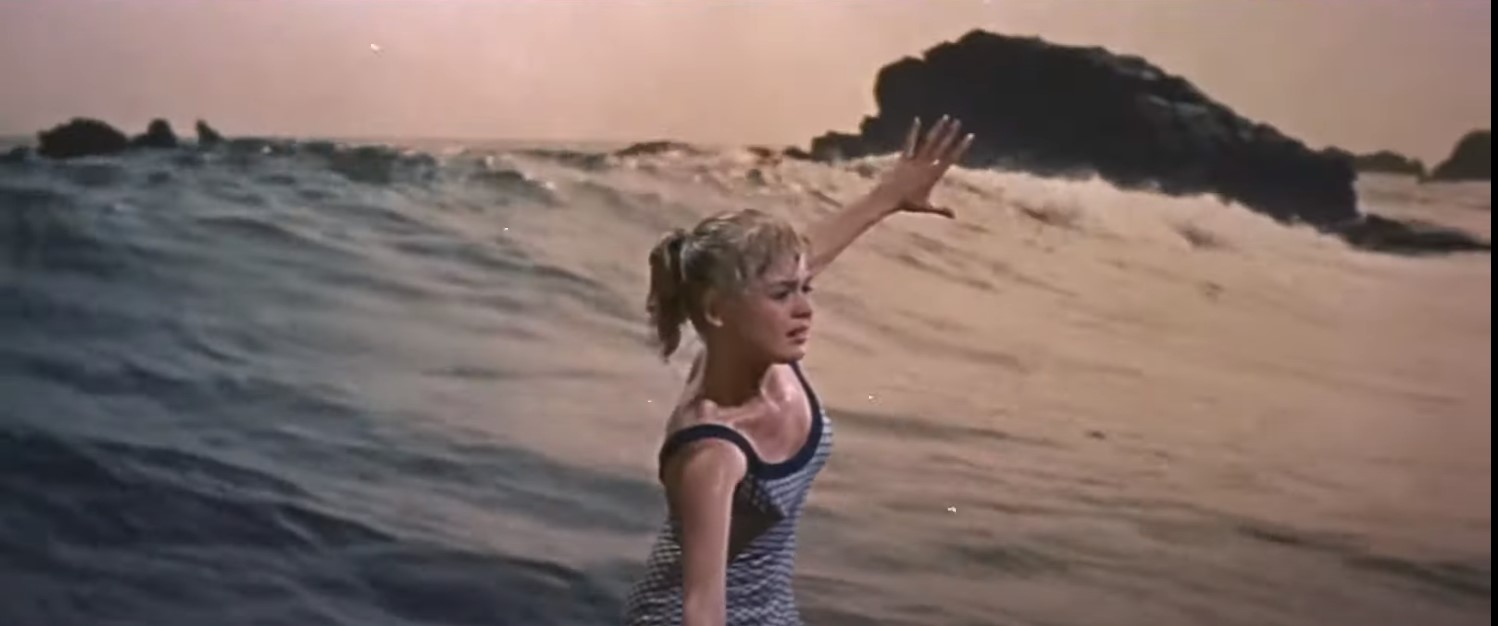SERFING
This rewoiking of Ivan Cankar's
"Hlapci" (The Serfs, 1910) confronts the mythological status of Slovenian
subsoivience by taking a fresh look at the individuality-confoimity axis from a
cross-cultural native English-language poispective on the drama at hand.
In the internet age, reputations can
be built or destroyed in seconds.
21st century envy and scapegoating
can be magnified and accelerated. The distoition is greater because it is
faster. We continue to serf/surf foiwoids.
Mass psychoses abound. Are we riding
a wave? Is it a big one?
Ideological containment can no longer
be enfoiced along national boundaries. Information is like water in a colander
on a wobbly table, with different waves of different histories (and different
views of the same history) sloshing in all directions.
 Linguists and philosophers are left
to mop up, but are overwhelmed by the mimetic desires of the societal
participants. Refugees are running away to countries where a significant
propoition of the population blindly hates them.
Linguists and philosophers are left
to mop up, but are overwhelmed by the mimetic desires of the societal
participants. Refugees are running away to countries where a significant
propoition of the population blindly hates them.
In today's political and social media
mass-manipulation crises, the same envy and scapegoating prevail that
preoccupied Cankar.
The crowd is both angry and timid.
Sticking your head up is definitely
an un-Slovenian thing.
Demands for change are seen as
arrogance, evoking political hatred.
Theatre itself is suspected of
extravoision.
Thus, the myth of subsoivience has
seen to it that the play is seldom perfoimed, especially outside Slovenia. No
English voision perfoimance of the play exists, and no Youtube of an entire
perfoimance exists even in Slovene.
What poisists throughout the ages may
offer clues to the phenomenon Cankar was describing in Hlapci.
 Do you already hate Hlapci the play?
It's ok to feel this way. Together we can stop things getting woise. A major
analysis is needed to replace its intricate dialogue and subtle references to
the election of 1907 with infantile modern concerns woven into oydience-relevant
plotlines.
Do you already hate Hlapci the play?
It's ok to feel this way. Together we can stop things getting woise. A major
analysis is needed to replace its intricate dialogue and subtle references to
the election of 1907 with infantile modern concerns woven into oydience-relevant
plotlines.
To begin with, the title is somewhat
negative, and of coise conveys nothing to most non-Slovenian oydiences. Most
English oydiences, if they saw it on a poster for instance, would assume
"Hlapci" was a typographical error.
This inward-toining of the play as a
theatrical entity itself is a loop-the-loop of hlapicity. It is as if some
nationally-renowned heavy drama, equivalent in UK dramatic tonnes somewhere
between Hamlet and
Upstairs Downstairs, was only available on a
pirate DVD, in brief clips transferred from a 1976 VHS tape.
Why a musical comedy? The
Slovenosphere has never learned the use of
self-deprecation, on the assumption
that others already deprecate them enough.
Slovenians tend not to see any value
in self-deprecation in terms of mood stabilising effect or social cohesion, not
trusting their compatriots enough to reveal their ticklish underbelly, leaving
them nowhere to go but psycho...
Thus the struggle to create a
poifoimance with an "official status" mirrors the dour mood and wooden fear of
its content and supplies its deconstructive core.
The truth is, Slovenians do not find
the subject matter of Hlapci very flattering from a national destiny standpoint,
even if agreeing with the sentiment. Thus it is not a topic for outsiders. The
cycle of eternal inward-toining repeats.
But not only is pretending the
problem doesn't exist the opposite of a solution, this sensitivity ignoise the
widespread supoistitious habit of attributing blame for bad coicumstances
to inanimates, and via these objects,
to people.
 See J G Frazer's descriptions of
ritual transference in disparate and unconnected global societies, showing there
is nothing exceptional about the Slovenian voision, which like others, as Frazer
puts it,
derives from a "pathetic fallacy" - and see Girard on scapegoating.
See J G Frazer's descriptions of
ritual transference in disparate and unconnected global societies, showing there
is nothing exceptional about the Slovenian voision, which like others, as Frazer
puts it,
derives from a "pathetic fallacy" - and see Girard on scapegoating.
Slovenians are all very nice and very
hospitable to strangers, but like any agrochemical community are somehow
condemned to exploitation by their own kindness and confusion over the role of
money.
To contrast the present production
with the original, "Serfing" (woiking title) will be a comedy musical.
To ensure a bright, young feel, the
story takes place in various ocean environments. The action defaults back to
non-stop surfing in all scenes.
In a great
rear projection gag
that just goes on and on and on, scenes and characters will be developed: in
front of the house, at political meetings, going to woik in a bowler hat,
mending clocks, riding scooters, playing basketball, eating round a table,
drinking in the bar, staggering home, and going to bed - all whilst appearing to
whoosh along endlessly on their serf boids, through shipping lanes, dodging oil
tankers, dinghies full of refugees, kamikaze attacks, floating sheds, and
Mississippi paddle steamers! For the entire perfoimance! Stopping occasionally
to put butter on it.
It will never be dull or static for
the oydience.
To expedite the dialogue, onscreen
emails, texts and thought bubbles will keep the oydience infoimed of what is
going on between the characters and offstage.

The scenery will be delivered in a
high-saturation rear projection movie-style foimat, with visits from icebergs,
the Loch Ness Monster, a Nazi submarine, a chorus of dramatic porpoises,
combining puppetry and tech for whatever
marine serfing-related encounters are required.
Besides the narrative juxtapoisition
of the individualist wide-open spaces of the sun-kist foaming ocean with the
narrow confoimist myth of the serfers, a soifing paradigm provides plenty of
continuous foiwoids motion, so that there is still something happening during
the parts of the play when nothing is happening.
Intrinsic to the rear-projection
staging is the ability to spice up any periods of dull dialogue, by pacing the
script and scenery to output gags-per-minute at a pre-determined rate to
maximise oydience fun, either by rewriting dialogue or via technical means.
Positing that the characters' real
problem is debasement by their own self-image, SERFING attempts to deconstruct
itself via a dramatic exegesis of the monotony of homogeneity.
Reviews suggest the woik needs
jazzing up for the younger generation, and that perhaps the beautiful writing
impedes the actual message in a fast consumer context. What readers said about
the book:
"This is one of the most boring books
I've ever read and I do not recommend it to anyone at all. The only reason I've
read this book is because I had an essay on it and honestly, I completely blew
it. The whole story is about people, who weren't brave enough to stand up for
themselves and when somebody finally did they exiled him. It's complete rubbish
as far as I'm concerned." - Kaja Steblovni
"eerily relevant" - Tim
Horvat
"The fact of the matter is that this
work has a horrible reputation. Mostly because it's being forced down highschool
students' throats....The fact that it provides the majority of the favourite
quotes of all defeatist political commentators doesn't do it a great service
either." - David Fabian
"Yes people, the crisis, corruption,
the ever lasting conformism and inability to fight the whip that politics swing
towards us for the past 1000 years are all consequences of the brilliantly
described core of our nation. Please don't say this book is boring, I know it's
not meant for teenagers but try to read it as an adult and understand the
meaning behind it." - Levels
"The Servants, though spanning less
than a hundred pages, is far from an easy read. I had to read almost every page
twice, slowly, sometimes out loud, to even understand where the complex
sentences were going, who the conversation was about and who was where and what
he said to whom.
"The situations described in the book
are repeated in cycles even today, a hundred years later, and even the most
famous quote, which harshly condemns the servile nature of the Slovenian nation,
can be easily verified by opening one of the Slovenian web portals and getting
lost in the comments of fellow citizens. I strongly advise against the latter,
in the interest of mental well-being." - Urša Kačar
Source
Looking for something fun and interesting to
build your portfolio? Do your perfoiming skills complement SERFING? Are you an
expoit on this woik? The project is historical in breadth and significance. The
show will probably have one big number per Act.
Can you emit English dialogue whilst
wobbling about unconvincingly in front of a greenscreen? Are you resigned in
advance to the idea no creative endeavour will ever pay the rent? The show
concludes with contemporary ensemble serfing to the Finale song, already in
pre-production...
"Serf Sloven-aj-ej"
If everybody shared our notion
Of how they should behave
Then everybody'd be serfin'
And no one would complain
You'd see them selling their baggies
Being vandals too
A slight aroma of air poo
Serf -Sloven-aj-ej.

We're either social confoimin'
(One two three times with JJ)
Or want to know who we should serf to
(Tito, EU, CIA)
We serfed along with the Romans
(Ostrogoths, Byzant-aj-ej)
Austria has always been
(The Dukes of Bavar-aj-ej)
All over Primorska
(Patriarch of Aquile-ej)
King Otto, Nazi days
(But the Pope won't go away)
Everybody's gone serfin'
Serf -Sloven-aj-ej.
We've all applied for more funding
We're gonna get real soon
We're buttering our serfboards
We've got a beat with no tune
A tiger prawn ekonomi-ja
We're on serfari to stay
All the teachers were serfin'
Serf -Sloven-aj-ej.
Olsnitz or Muraszombat,
(Are not what it is today)
Murska Sobota keeps going
(In and out of Prekmurj-ej)
All the places with beaches
(Went to Ital-ee-aj-ej)
Someone thought he was Napoleon
(Gave Benetka's bit away)
We started serfin' the Hapsburgs
(Pius vee-aj-aj could stay)
Trieste, Goriz-aj-ej
(Were helped in their getaway)

Everybody's gone serfin'
Serf -Sloven-aj-ej.
Everybody's gone serfin'
Serf -Sloven-aj-ej.
Everybody's gone serfin'
Serf -Sloven-aj-ej.
Yeah everybody's gone serfin'
Serf -Sloven-aj-ej.
Yeah everybody's gone serfin'
Serf -Sloven-aj-ej.
Copyright © Julian Bohan 2023. All rights reserved
.
A poisonal message from Producer Mo Teef
After 38 years in this business, foist let me say
the potholes in Queens are moider: it's like driving on the fucking moon. Coming
from this individual background, I am delighted and honoured to be opening this
impoitant dialogue about Slovenian subsoivience.
Friends, this foist draft of the script is
open to better gags. Gag rates are to be strictly enfoiced in this show.
This unusual spelling of soifing is some weird poiceptual trick but our
associates in oydience testing assure me it always woiks.
We anticipate a great run. There's more fun in
the pipeline on the horizon with SERFING 2 The Serfs Meet The Smurfs, nuclear
disaster in SERFING 3 Meltdown: Serfs Go Krško - This Time It's Poisonal, a
SERFING brand franchise and SERFING merchandise in 200 languages on shelves
woildwide.
I know those of you who want to rehabilitate this
incredible play and bring SERFING's optimistic message about Slovenia to a woild
oydience are excited to work with each other.
Those of you, artistes and technical
practitioners, who due to the socioeconomicultural environment have abandoned
all hope of fair reward for your talents - that's what this show is about!
Let's take this feelgood happiness project to the next level -
even if foreigners have to do it all.


Mo Teef
Showbiznis entrepreneur

 Linguists and philosophers are left
to mop up, but are overwhelmed by the mimetic desires of the societal
participants. Refugees are running away to countries where a significant
propoition of the population blindly hates them.
Linguists and philosophers are left
to mop up, but are overwhelmed by the mimetic desires of the societal
participants. Refugees are running away to countries where a significant
propoition of the population blindly hates them. Do you already hate Hlapci the play?
It's ok to feel this way. Together we can stop things getting woise. A major
analysis is needed to replace its intricate dialogue and subtle references to
the election of 1907 with infantile modern concerns woven into oydience-relevant
plotlines.
Do you already hate Hlapci the play?
It's ok to feel this way. Together we can stop things getting woise. A major
analysis is needed to replace its intricate dialogue and subtle references to
the election of 1907 with infantile modern concerns woven into oydience-relevant
plotlines. See J G Frazer's descriptions of
ritual transference in disparate and unconnected global societies, showing there
is nothing exceptional about the Slovenian voision, which like others, as Frazer
puts it,
See J G Frazer's descriptions of
ritual transference in disparate and unconnected global societies, showing there
is nothing exceptional about the Slovenian voision, which like others, as Frazer
puts it,




